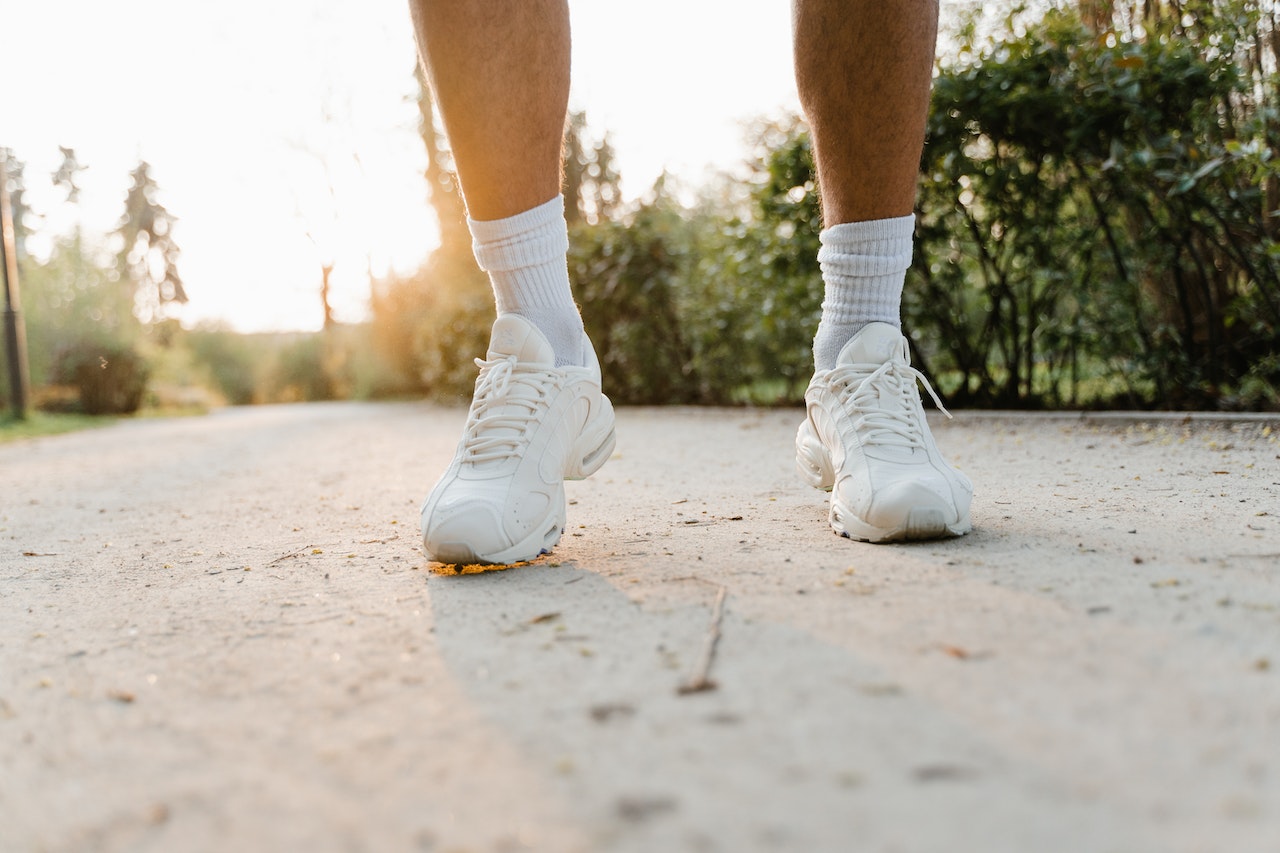
Compression socks are becoming increasingly popular, particularly among athletes and people with circulation issues. However, many still wonder whether wearing compression socks while sleeping is safe. And to answer that question, we need to understand how compression socks work.
What Are Compression Socks?
Compression socks are a special type of hosiery that uses graduated pressure on the lower limbs. The pressure is highest at the ankle and slowly decreases as it moves up the leg. This helps to enhance blood circulation and decrease swelling. The compression level is measured in millimeters of mercury (mmHg), with higher mmHg indicating greater pressure.
How Compression Socks Work
Compression socks provide graduated compression to the legs. The compression focuses mainly on the calves but extends up to the ankles and sometimes even higher up the leg. This pressure helps increase blood flow and lymphatic fluid circulation, reducing swelling and preventing blood clots.
The pressure can vary depending on the level of compression in the socks; generally, compression socks have a range of:
- 8-15 mmHg for mild compression
- 15-20 mmHg for moderate compression
- 20-30 mmHg for firm compression
- 30-40 mmHg for extra firm compression
It's worth noting that not all compression socks are the same. If the fit is too tight or loose in certain areas of your leg, it could cause discomfort or even injury if misused. Its important to select the right size and seek advice from a medical expert before using any compression clothing.
Compression socks that fit properly can provide various advantages for individuals with circulation problems or those who spend prolonged periods sitting or standing during their daily routine when used appropriately.
Can You Wear Compression Socks to Bed?
While you can wear compression socks to bed, there is no medical benefit to doing so. In fact, some doctors recommend that you avoid wearing compression socks at night, as it can interfere with your circulation and skin health.
When you are lying down, your blood does not need to travel against the force of gravity from your feet to your heart. This means that the compression socks are not providing any additional benefit. In fact, they can constrict your blood vessels and make it more difficult for blood to flow freely.
Here are some of the potential risks of wearing compression socks to bed:
- Skin irritation: The tight compression can restrict blood flow to the skin, leading to irritation, itching, and even sores.
- Reduced mobility: The compression can make it difficult to move around in bed, which can disrupt your sleep.
- Increased risk of deep vein thrombosis (DVT): DVT is a blood clot that can form in a deep vein, usually in the leg. Wearing compression socks at night can increase your risk of DVT, especially if you have a history of blood clots or other risk factors.
Why Do People Sleep with Compression Socks?
Compression socks have become increasingly popular in recent years, and many people swear by wearing them even while sleeping, praising compression socks for improving circulation, reducing muscle soreness, and comfort without realizing the risks of sleeping with compression socks.
When To Wear Compression Socks
Compression socks can be worn for various reasons, but it's important to know when to wear them for the most benefit. Here are some instances where wearing compression socks can be helpful:
1) At Work
Compression socks are an excellent choice for individuals required to stand for long hours while working, like healthcare workers, teachers, retail employees, or factory workers. Compression socks can help reduce that feeling of heaviness and tiredness in your legs by promoting better blood circulation.
However, compression socks may not be a good idea if you work in a warm environment or sweat more than usual during work hours. Excess moisture may cause skin irritation or even fungal infections. Therefore, wearing breathable materials and taking breaks throughout your workday is recommended to let your legs breathe.
2) While Exercising
Compression socks can be incredibly beneficial for high-impact activities like running, exercising, or sports. The boost in circulation helps deliver oxygen and nutrients to the muscles, making them work more efficiently.
Compression socks also help minimize muscle fatigue and soreness during exercise, improving recovery. It's important to note that not all compression socks are suitable for exercise.
Look for ones specifically designed for sports or exercise, as they provide targeted compression in critical areas that need it most, like the ankles and calves.
3) When You Travel
Even frequent travelers can benefit from wearing compression socks, especially those flying. When sitting in a plane seat for a long time, blood flow to your legs can be limited due to the position of the seat and decreased activity. This can cause swollen ankles and feet and deep vein thrombosis (DVT), but compression socks help minimize that risk by improving blood flow.
4) During And After Pregnancy
It's common for women to experience swelling in their legs and feet during pregnancy due to the extra pressure a growing uterus puts on the veins in the pelvis and legs. This is known as edema and can be incredibly uncomfortable or even painful.
Doctors often recommend compression socks for pregnant women with mild to moderate edema to alleviate this issue. Some women may experience postpartum swelling after giving birth, known as preeclampsia or eclampsia, which can also be relieved by compression socks.
5) If You Have A Medical Condition
Doctors often recommend compression socks for individuals with certain medical conditions, such as varicose veins or circulation problems. Compression socks can help alleviate pain and discomfort by reducing swelling and inflammation in the legs and feet through improved blood flow.
Those with diabetes can also benefit from wearing compression socks as they can prevent complications such as ulcers and infections; additionally, individuals who have undergone surgery or suffer from chronic venous insufficiency may find relief by wearing compression stockings.
It is important to consult with a doctor before using compression stockings if you have a medical condition.
How Long Should You Wear Compression Socks?
Aim to wear compression socks anywhere from 2 to 8 hours per day based on your activity level and underlying medical condition. Those with an underlying medical condition or who stand for long hours at work, maybe advised to increase that timeframe.
Conclusion: Avoid Sleeping In Compression Socks
Compression socks can offer numerous benefits when worn appropriately throughout the day for specific purposes, such as exercise or medical conditions, with a doctor's recommendation.
However, they should only be worn when you go to sleep. The extra pressure on your lower legs often proves more harmful than helpful for those who decide to sleep in compression socks.
If you are in the market for compression socks, why not check out what we here at Pro-Tect Socks have to offer?





Leave a comment
This site is protected by hCaptcha and the hCaptcha Privacy Policy and Terms of Service apply.